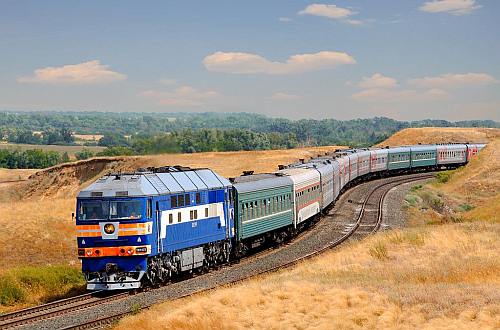Operating speeds for passenger services were increased along 220km of track, including on the Moscow - Adler line, while work was also undertaken to improve ride quality on 333 sections on the Moscow - Nizhny Novgorod, Moscow - Smolensk and St Petersburg - Buslovskaya lines. The line speed for freight trains was also increased along 192.8km of track.
RZD purchased 924 new track-maintenance and special purpose vehicles, at a cost of Roubles 23.8bn ($US 376.6m) during the year, and overhauled a further 262 track-maintenance vehicles.
In the far east, double track was introduced on a 49.5km section of the Baikal-Amur (BAM) and Trans-Siberian railways. In addition, RZD installed 180 points and 50.9km of track in stations on the two routes.
The railway also constructed five traction substations, restored overhead electrification along one stretch of track, built three locomotive maintenance facilities, opened five bridges, including one over the Zeya River, and completed the Vladivostok Tunnel.
The work was undertaken as part of a Roubles 380bn project launched in 2013 to reduce bottlenecks and improve infrastructure to increase freight capacity in the region. RZD says this work has been successful, with freight traffic nearly doubling from 58.1 million tonnes in 2012 to 114 million tonnes in 2019. RZD hopes to increase this to 124.9 million tonnes in 2020.
In total, RZD has renovated 39 stations, renewed more than 5000km of track, introduced 303km of double track, installed 2000 points, refurbished 45 substations, and completed the 6.7km Baikal tunnel.

